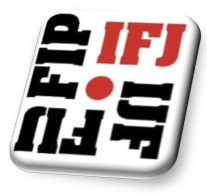Published: 1 February 2013
Region: Worldwide
 International Federation of Journalists (IFJ) and the World Association for Christian Communication (WACC) have published two books on gender ethical reporting.
International Federation of Journalists (IFJ) and the World Association for Christian Communication (WACC) have published two books on gender ethical reporting.

The Learning Resource Kit for Gender-Ethical Journalism and Media House Policy combines conceptual discussions on gender in media policy and practice, with practical guidelines to improve gender fairness and balance in journalism.
Book 1 discusses some conceptual issues regarding gender in news reporting while Book 2 provides gender-ethical thematic guidelines on reporting climate change, disaster, economic news, sexual and reproductive health, human trafficking, peace and security, politics, and sexual violence.
The resource kit draws on the insights and expertise of gender and media experts, researchers and media practitioners from Africa, Asia, the Caribbean, Europe, Latin America, North America and Pacific, said IFJ and WACC.
Both books are available in Arabic, English, French and Spanish and can be downloaded free from www.whomakesthenews.org
Research such as the Global Media Monitoring Project shows just how marginalised women remain in the news. In 2010 it was revealed that women make up only 24% of the people heard, read about or seen in the news. The IFJ launched the Ethical Journalism Initiative to confront on-going discrimination in the news and reconnect journalists to their mission by enforcing core ethical standards.
Fair gender portrayal is one of the issues to be given priority if media hope to fully reflect the role women play in society, says in preamble of the books published by IFJ and WACC. Numerous cases reveal a failure to portray gender issues fairly and accurately and very few initiatives exist to develop ethical standards and avoid unfair and outdated stereotypes. The learning resource kit aims to provide an answer to the current gender gap in news content and lack of existing self-regulatory mechanisms to confront gender bias.